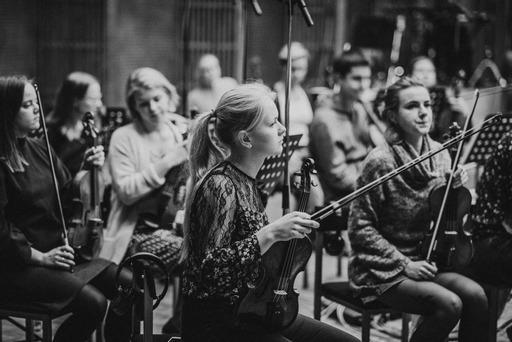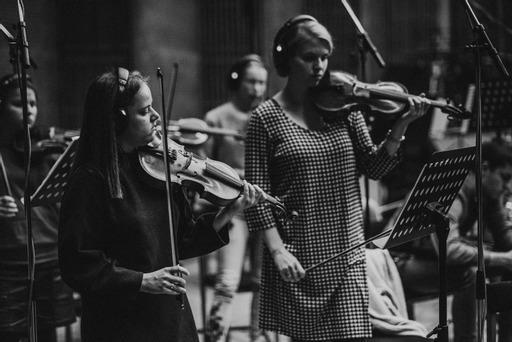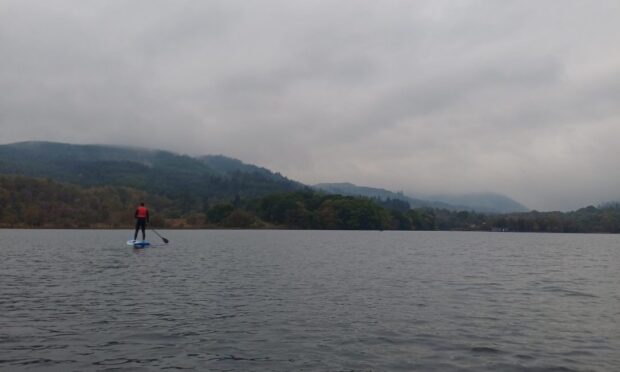Modern composer Max Richter talks Brian Donaldson through his new record, which commemorates the 2015 refugee crisis.
The power of music to move the human heart has long been established. But the reasoning behind that power remains an unsolved mystery.
Not even Max Richter, a modern composer who can shift the emotions with a few piano notes here or an aching violin there, can get to the root of the matter.
And this is a man whose music was described by the late David Bowie as having ‘the power to produce tears when listened to in the right setting’.
Emotional music
“Music is an emotional language and the fact that we can get goosebumps or cry from a combination of sounds . . .when you think about that rationally for a second, it’s totally bizarre, but it does have this hold over us.
“I work all day every day with music and it’s a mystery to me but it’s one that I love to be involved with. Weird unexpected things can come on the radio and just floor you, and you think ‘why’?”
Exiles album
The German-English composer who studied piano and composition at Edinburgh University is at it again with his new record, Exiles.
Its title track is 33 minutes long and penned by Richter at the height of the migrant tragedy in 2015 for a ballet with the acclaimed Nederlands Dans Theater (NDT).
The piece is classic Richter: a seemingly simple melody that repeats and builds, steadily and dramatically, eventually surrounded and elevated by a swell of strings before fading quietly back into the shadows.
Refugee crisis 2015
One feeling being evoked in listening to Exiles is that of a long, slow journey across countries and continents, a search towards peace and a plea for empathy.
“I always need a reason to write: what is the story I want to be telling, and especially with ballet which is a narrative thing”, he adds.
“So the big story of that era came to be called the refugee crisis. We were living in Berlin at the time and had a slightly different window on it because Germany was hugely active in allowing people who had been fleeing to settle there.
“They took in a million plus which was an extraordinary thing to do. I wanted to make a piece that would allow people to reflect on that and have a space to think about it.”
Pandemic effects
Richter believes that the time is right now for a record and message such as Exiles, given that since 2016 the media has been overwhelmed by Brexit and then Covid.
“The story may have dropped out of the news cycle, but the problem has not gone away”, he explains.
“The pandemic has made everything that was pretty bad, whether socio-political or environmental, even worse, hasn’t it? So it’s an opportunity to have us think about it again and realise that it hasn’t been solved.”
Alongside the epic title track are five re-imaginings of his own work including On The Nature Of Daylight (by two minutes in you should be an emotional wreck) and Infra 5, a piece written in response to the 2005 terror attacks in London.
Baltic Sea Philharmonic
All six tracks were recorded with the Baltic Sea Philharmonic, an innovative collection of young musicians from that region, led by conductor Kristjan Järvi.
“I knew Kristjan from other things with other orchestras and he talked to me about this orchestra”, Richer adds.
“It’s an amazing project, really visionary, of making an orchestra of young professionals comprised of players of nations surrounding the Baltics, from old eastern bloc countries and western countries.
“It’s about the future by virtue of the age of the players and has this unifying social dimension with people making music together and understanding one another from creative collaborative work. So it really made sense to use them as the band.”
Plans for the future
Richter is keen to get back onto the live stage to perform this new work as well as beloved projects from his back-catalogue such as his ‘recomposed’ Four Seasons, the reaction to which was nothing short of sensational from its release in 2012.
“We played it at the Montreux Jazz Festival and we basically just had to stop the show, because the audience was going nuts and wouldn’t let us keep playing”, Ritcher reminisces.
Coming next though, Richter is teaming up with choreographer Wayne McGregor on a work in collaboration with Margaret Atwood. Hankies at the ready, folks.













